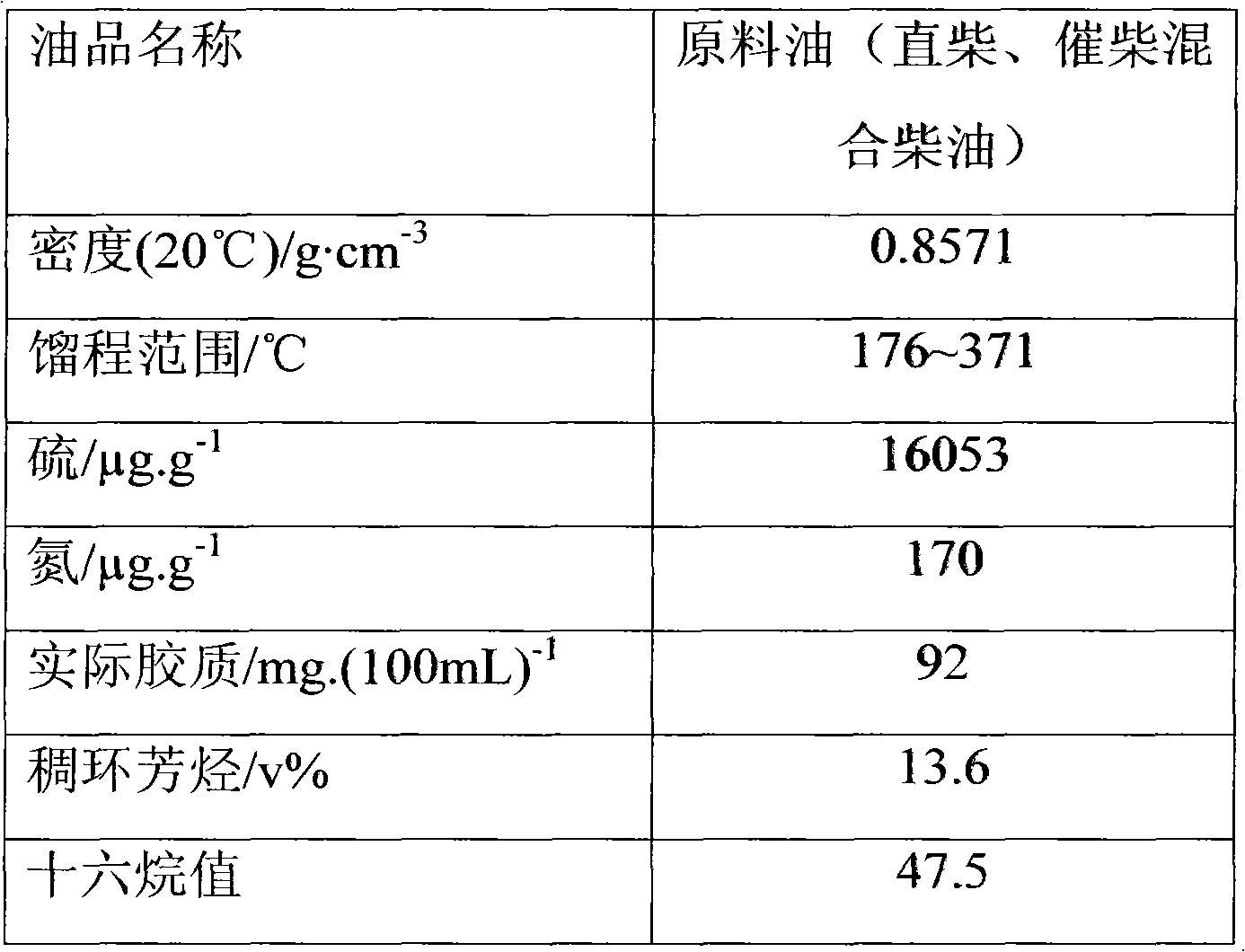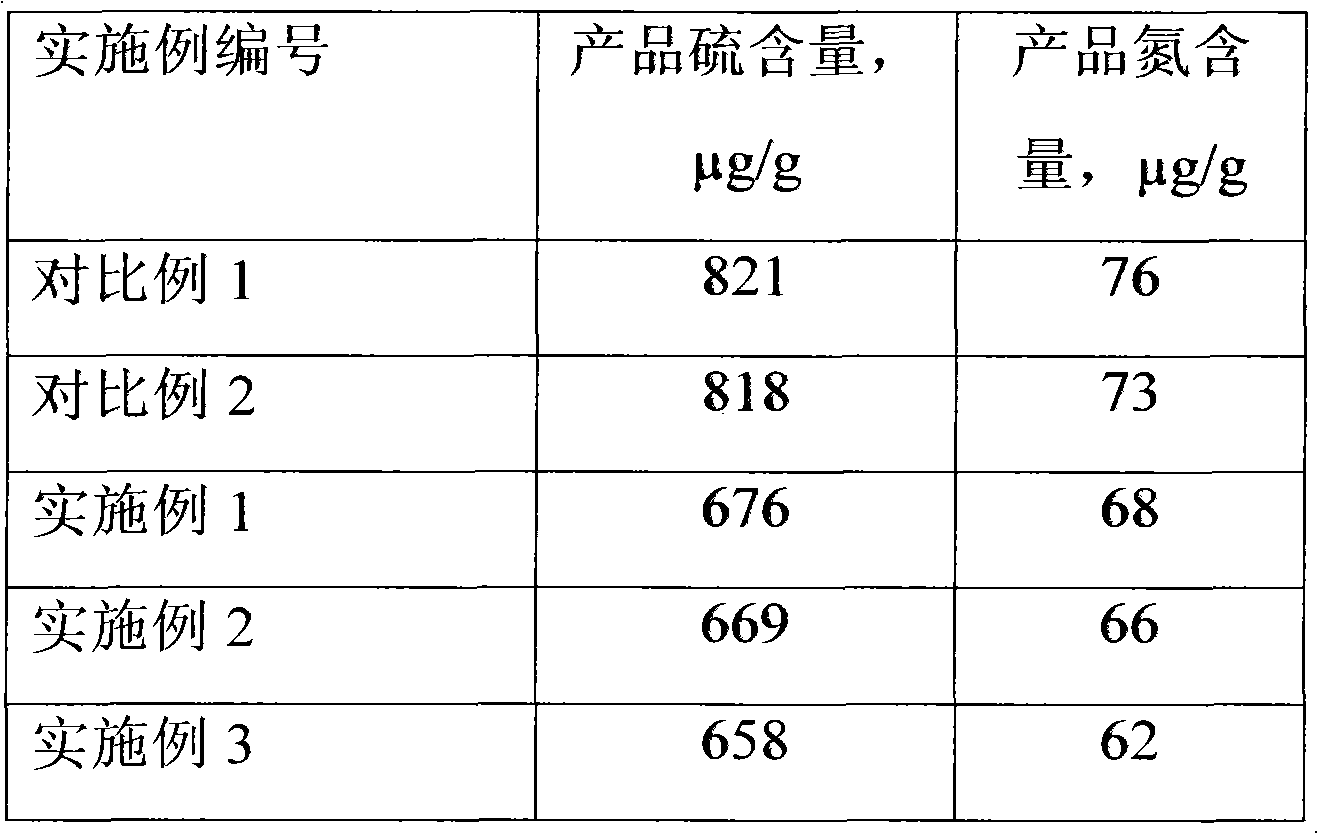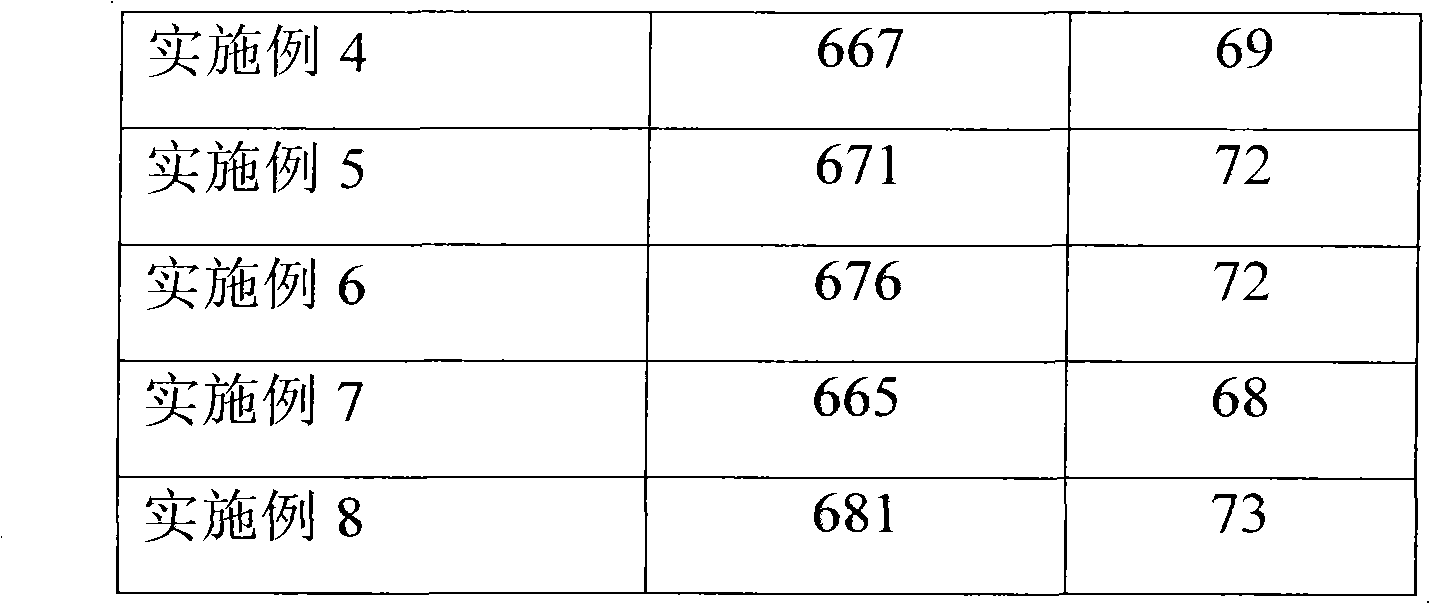Method for regenerating and pre-vulcanizing hydrogenation catalyst
A hydrogenation catalyst and catalyst technology, applied in the direction of catalyst regeneration/reactivation, catalyst activation/preparation, chemical instruments and methods, etc., can solve the problems of high energy consumption and long production cycle, and achieve simple equipment and high sulfur retention. , the effect of reducing energy consumption
- Summary
- Abstract
- Description
- Claims
- Application Information
AI Technical Summary
Problems solved by technology
Method used
Image
Examples
Embodiment 1
[0039] The amount of deactivated hydrotreating catalyst FH-DS is 100 grams, which is regenerated in an air atmosphere. Roast at a constant temperature of 280°C for 3 hours, then raise the temperature to 480°C for 3 hours, then lower the temperature to 180°C. Mix 10g of elemental sulfur with 5g of (NH 4 ) 2 S mix and heat mix at 150°C. The mixed vulcanizing agent was then impregnated into the catalyst and treated at 180° C. for 3 hours. When the temperature is lowered to 90° C., add 20 g of organic solvent (the organic solvent is a fraction of coking kerosene), the proportion of carbon atoms in the organic solvent is not less than 50%, keep the temperature for 3 hours, and then cool down to room temperature. The activity evaluation was carried out, and the catalyst activity results are shown in Table 2.
Embodiment 2
[0041] The amount of deactivated hydrotreating catalyst FH-DS is 100 grams, which is regenerated in an air atmosphere. Roast at a constant temperature of 320°C for 4 hours, then raise the temperature to 500°C and bake for 4 hours, then lower the temperature to 200°C. 12g of elemental sulfur and 6g of (NH 4 ) 2 S mixing, heat mixing at 150°C. Then the mixed vulcanizing agent is impregnated with the catalyst, and treated at 200°C for 6 hours, and when the temperature is lowered to 80°C, add 25g of organic solvent (organic solvent is coking kerosene fraction), and the proportion of carbon atoms in the organic solvent is 9-12. Less than 50%, keep the temperature for 2 hours, then drop to room temperature. The activity evaluation was carried out, and the catalyst activity results are shown in Table 2.
Embodiment 3
[0043] The amount of deactivated hydrotreating catalyst FH-DS is 100 grams, which is regenerated in an air atmosphere. Roast at a constant temperature of 300°C for 3 hours, then raise the temperature to 500°C and bake for 3 hours, then lower the temperature to 150°C. Mix 10g of elemental sulfur with 5g of (NH 4 ) 2 S mixing, heat mixing at 135°C. Then impregnate the heated and mixed vulcanizing agent into the catalyst, and treat it at 150°C for 6 hours. When the temperature is lowered to 85°C, add 25g of organic solvent (organic solvent is coking kerosene fraction), the proportion of carbon atoms in the organic solvent is 9-12 Not less than 50%, keep the temperature for 3 hours, then drop to room temperature. The activity evaluation was carried out, and the catalyst activity results are shown in Table 2.
PUM
 Login to View More
Login to View More Abstract
Description
Claims
Application Information
 Login to View More
Login to View More - R&D
- Intellectual Property
- Life Sciences
- Materials
- Tech Scout
- Unparalleled Data Quality
- Higher Quality Content
- 60% Fewer Hallucinations
Browse by: Latest US Patents, China's latest patents, Technical Efficacy Thesaurus, Application Domain, Technology Topic, Popular Technical Reports.
© 2025 PatSnap. All rights reserved.Legal|Privacy policy|Modern Slavery Act Transparency Statement|Sitemap|About US| Contact US: help@patsnap.com



